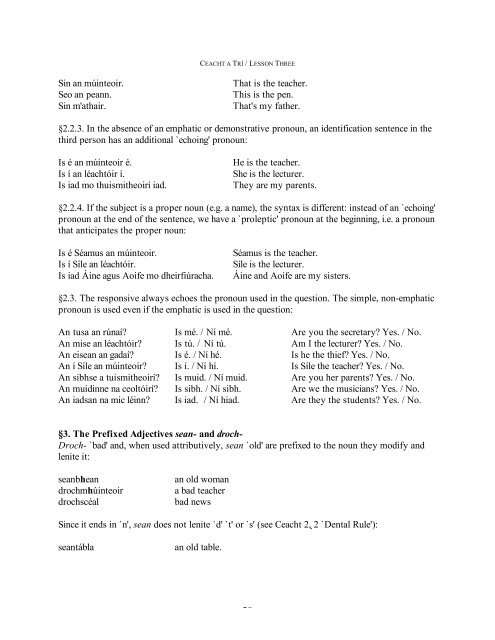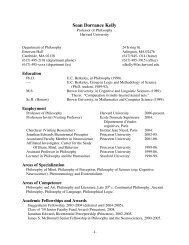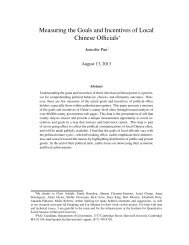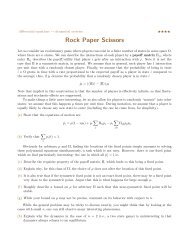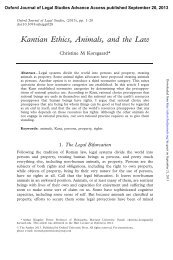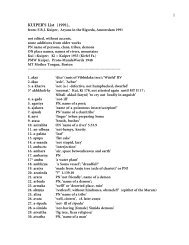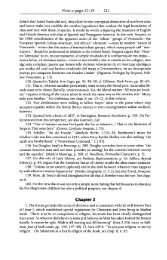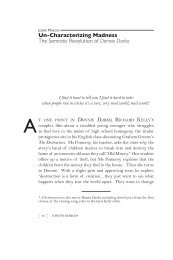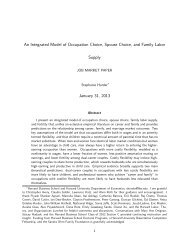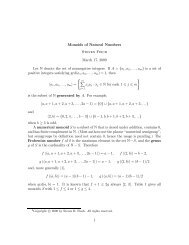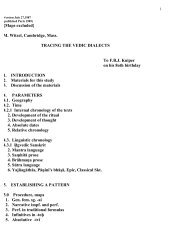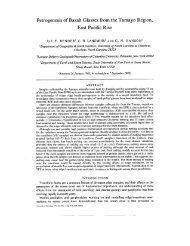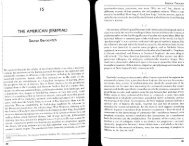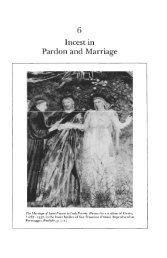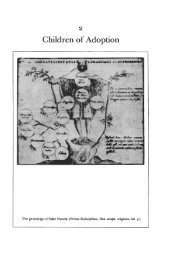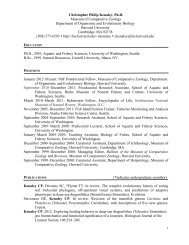Buntús na Gaeilge - People Fas Harvard - Harvard University
Buntús na Gaeilge - People Fas Harvard - Harvard University
Buntús na Gaeilge - People Fas Harvard - Harvard University
You also want an ePaper? Increase the reach of your titles
YUMPU automatically turns print PDFs into web optimized ePapers that Google loves.
CEACHT A TRÍ / LESSON THREE<br />
Sin an múinteoir. That is the teacher.<br />
Seo an peann. This is the pen.<br />
Sin m'athair. That's my father.<br />
§2.2.3. In the absence of an emphatic or demonstrative pronoun, an identification sentence in the<br />
third person has an additio<strong>na</strong>l `echoing' pronoun:<br />
Is é an múinteoir é. He is the teacher.<br />
Is í an léachtóir í. She is the lecturer.<br />
Is iad mo thuismitheoirí iad. They are my parents.<br />
§2.2.4. If the subject is a proper noun (e.g. a <strong>na</strong>me), the syntax is different: instead of an `echoing'<br />
pronoun at the end of the sentence, we have a `proleptic' pronoun at the beginning, i.e. a pronoun<br />
that anticipates the proper noun:<br />
Is é Séamus an múinteoir. Séamus is the teacher.<br />
Is í Síle an léachtóir. Síle is the lecturer.<br />
Is iad Áine agus Aoife mo dheirfiúracha. Áine and Aoife are my sisters.<br />
§2.3. The responsive always echoes the pronoun used in the question. The simple, non-emphatic<br />
pronoun is used even if the emphatic is used in the question:<br />
An tusa an rú<strong>na</strong>í? Is mé. / Ní mé. Are you the secretary? Yes. / No.<br />
An mise an léachtóir? Is tú. / Ní tú. Am I the lecturer? Yes. / No.<br />
An eisean an gadaí? Is é. / Ní hé. Is he the thief? Yes. / No.<br />
An í Síle an múinteoir? Is í. / Ní hí. Is Síle the teacher? Yes. / No.<br />
An sibhse a tuismitheoirí? Is muid. / Ní muid. Are you her parents? Yes. / No.<br />
An muidinne <strong>na</strong> ceoltóirí? Is sibh. / Ní sibh. Are we the musicians? Yes. / No.<br />
An iadsan <strong>na</strong> mic léinn? Is iad. / Ní hiad. Are they the students? Yes. / No.<br />
§3. The Prefixed Adjectives sean- and droch-<br />
Droch- `bad' and, when used attributively, sean `old' are prefixed to the noun they modify and<br />
lenite it:<br />
seanbhean an old woman<br />
drochmhúinteoir a bad teacher<br />
drochscéal bad news<br />
Since it ends in `n', sean does not lenite `d' `t' or `s' (see Ceacht 2, 2 `Dental Rule'):<br />
seantábla an old table.<br />
28


